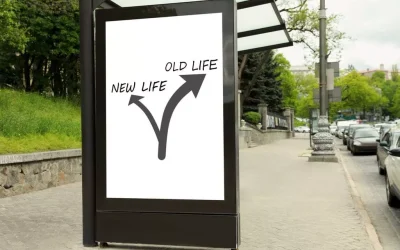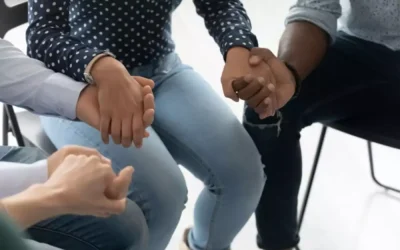If you’ve ever received unsolicited advice or a judgmental side-eye, you know how irritating — even hurtful — peer pressure can be. There might be many cases in which you have experienced peer pressure, but you don’t want to respond to it, so you can think of a response which can help you to escape from that situation. This process will help you to handle peer pressure if you face it during that time. Identify friends who share the same values as you have and agree to stick together when out socially. Having an ally who can intervene when you’re clearly uncomfortable builds motivation to leave tempting situations properly. Providing backup and supporting each other is a proper system which you can carry out with your buddy.
More on this topicFor Teens
3 Ways to Help Your Child Deal With Peer Pressure – Focus on the Family
3 Ways to Help Your Child Deal With Peer Pressure.
Posted: Wed, 21 Oct 2020 21:10:56 GMT [source]
For example, if teens are being pressured to shoplift, teach them things they can ask their peers. ” Hearing consequences said aloud can also get peers thinking and potentially changing their minds about the very thing they were pressuring others to do. It’s important to allow teens to make day-to-day decisions for themselves. If parents are always deciding things for them, they send the message that their teens are incapable.
Model positive behavior

It’s more like a dance where everyone tries different moves to look like they know what steps to take. People make choices and engage in behaviors because they think it’s how they’ll fit in. And, the people suggesting the behaviors often do it to show they are the trendsetters. You can also positively peer pressure others by the way you respond to situations.

Positive vs Negative Peer Pressure
But when you give credence to your child’s feelings instead of seeking to control them — even when they’re not the same as yours — you acknowledge that they’re their own person. Guilt — often stemming from big life disruptions like moves or divorces — was another reason cited. Participants reported that they feared being neglectful during those upheavals, and they overcompensated with parental which of the following is a type of indirect peer pressure? pressure. According to a 2021 study of non-Hispanic Black children in the United States, kids whose food or weight was monitored by parents may have a higher body mass index (BMI). Kids of all genders, and especially adolescents, who are teased or pressured about their weight by family members may be at a higher risk for developing eating disorders, according to 2022 research.
- Seek out relationships with those who lift you, not drag you down.
- Young people may be more susceptible to peer pressure because their identities are still forming; they desire to fit in and not be bullied and have less risk aversion than adults.
- Peer pressure causes people to do things they would not otherwise do with the hope of fitting in or being noticed.
- This can include modeling good communication, treating others with respect, and making healthy choices regarding substance use, screen time, and other behaviors.
Amid the complexities of peer pressure, the role of parental guidance emerges as a cornerstone of a child’s development. It’s important to recognize that shielding children from all forms of peer pressure isn’t the goal. Instead, your responsibility as parents is to provide them with the essential tools to navigate these influences with wisdom and integrity.
- For example, students may pressure their peers to engage in risky behaviors, such as drug and alcohol use, skipping school, or cheating on tests.
- Learning about acceptable group norms can be a positive part of learning how to live with and socialize with others.
- Often, we think of peer pressure in relation to alcohol or other drugs.
- People who are your age, like your classmates, are called peers.
- As parents, you have the privilege and responsibility of being the foundational pillars of support for our children.
- In rare instances, some teens pressure other teens to commit suicide.
Seek out relationships with those who lift you, not drag you down. You’ll feel less alone when pressured if you have even one friend committed to avoiding risky behaviour, too. Mutual sharing of struggles in a safe space with those you trust can normalise challenges many secretly face. The relief of being truly seen and heard can become its lifeline. Friendship at its best – listening without criticism and encouraging self-forgiveness – epitomises unconditional support.

Strategies to Teach Teens to Deal With Peer Pressure
- Parents can influence the odds that teens are surrounded by positive peer groups by encouraging participation in a variety of healthy activities.
- That’s when you tell your child that if he calls you to leave a party or a bad situation, you will go and get him with no consequences and no questions asked.
- If parents are always deciding things for them, they send the message that their teens are incapable.
- One of the most common examples of good peer pressure is when students encourage their peers to work hard and do well in their studies.
- Read on to learn the signs, types, and impact of peer pressure and how to handle it when your child experiences it.
- However, there is still a standard set by the group to behave in a certain way.
- Positive peer pressure has the potential to wield transformative influence.
- Are your actions unconsciously influenced by what the other parents are doing around you?
- Amid the complexities of peer pressure, the role of parental guidance emerges as a cornerstone of a child’s development.
- Peer pressure is a phenomenon that has persisted through changes in culture, society, and technology.
- But our own definitions of happiness and success may not ring true for our children.


